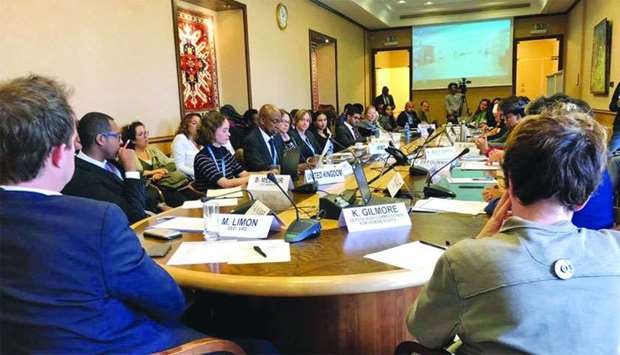Education Above All (EAA) and the Human Rights Council gathered some of the world’s most leading experts and advocates to discuss the current state of affairs regarding the right to education.
Focused on ways to elevate the issue as fundamental human right and with an emphasis on celebrating achievements but also looking at some of the seemingly intractable challenges, the roundtable discussion featured a variety of perspectives and dynamic ideas.
EAA co-hosted the roundtable in co-operation with the Human Rights Council in Geneva and the Qatar Fund for Development (QFFD). Moderated by Marc Leman, chief executive officer, URG, the roundtable featured opening remarks from Khalifa al-Kuwari, director general, QFFD. Participants included Kate Gilmore, deputy high commissioner for Human Rights, UNHCR; Vincent Defourny director of Unesco, Liaison Office, Geneva; chief executive officer, EAA among others.
In their efforts to meet commitments in making education for all a reality, countries are increasingly concerned with the delivery, quality and relevance of their education systems. Among the achievements realised so far, the right to education is now a constitutional right in 140 States, and most of them have adopted laws or updated their policies to accommodate free and compulsory education or have proceeded to ensure the equality of educational opportunities.
Progress has been achieved globally with the number of primary school-age children who are not enrolled in school decreased by nearly half between 2000 and 2015. Additionally, illiteracy rates were decreased three-fold in the last 70 years, since the adoption of the Universal Declaration of Human Rights from 44% in 1950 to 16% in 2016. Much work remains to be done, however—particularly regarding education in crisis and conflict zones.
Discussion focused on the need to protect education as a fundamental human right and ways in which local advocates can support innovative solutions and provide insights into their specific contexts in order to address ongoing challenges. Since the proclamation of the right to education, new challenges have emerged that require immediate and more creative solutions.
Youth advocates present at the roundtable shared their viewpoints on these issues and others, pushing those gathered to commit to real, actionable change. Ideas such as an annual international day for the protection of education in conflict, put forth by Her Highness Sheikha Moza bint Nasser, founder of EAA, during her keynote address to the Human Rights Council, was lauded as a way to move the conversation forward and create more accountability in the space.
Commenting on the event, Gilmore said, “To protect education from attack, we need to ensure accountability for those who deliberately deny the right to education. They agreed today that they will do this through providing the vision supported Grass root individuals and groups can also be powerful if they act together.”

